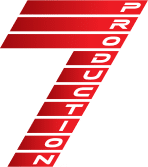
Increasing the number of women in the workplace is not just a nice-to-have, but also has a measurable impact on any organisation’s bottom line. Governments in the region support all initiatives and programmes that aim to boost the number of working women in the Middle East, but there is room to improve diversity in the workplace and close the gender gap to make a real impact.
In honour of International Women’s Day, Digital Studio Middle East will shine the spotlight on women in the industry, and share their perspectives and challenges, while asking them to dispense advice to women ready to launch their careers.
Lara Ghanem is the regional director at 7 Production and the co-founder of Blue Guard Middle East. The latter’s mission is to reduce fatalities in the UAE by empowering people with the skills and confidence to save lives. Ghanem is part Finnish, part Lebanese and has lived in Dubai her entire life. She says that the cultural diversity she grew up in allows her to easily and comfortably adapt to any environment and conversation. She adds: “I am definitely most Lebanese when it comes to my hospitality and entertaining side, and I am most Scandinavian with my values of community, safety & well-being.
In this interview, Ghanem discusses how she ended up in this industry, the challenges she faced, and how to encourage women to make a mark in the broadcasting sector.
Did you always know that you wanted to follow this career path?
No. Growing up, I always loved watching famous events on television: live concerts, festivals, sporting events and so on. Little did I know I would eventually be part of an organisation that specialised in filming and broadcasting them, so viewers can watch them in the comfort of their homes. There is something surreal about being the team behind-the-scenes of large-scale productions such as the Formula One, The Dakar Rally, Arab Idol & Top Chef Arabia for example. I definitely did not know this is what I wanted to do.
How does it feel to be a woman in a male-dominated field?
Honestly, I am indifferent. Growing up, I have been fortunate enough to have the support and mentorship of male figures, and this has not changed in my career. Irrelevant of gender, every individual has a unique twist they bring to the table, and I always focus on that element.
Many women in the industry have felt their gender has affected the way that they are perceived or treated. What challenges have you faced in the workplace and how did you handle them?
The biggest challenge I faced being female, mainly at the start of my career, is when clients expect a male to attend meetings, and end up meeting me. My age was a factor as well. I was the youngest person in the room when closing prospects. I once got asked when my manager was attending the meeting, as my client at the time thought I was there to take notes. Coming face-to-face with such situations definitely puts you on the spot and moulds you to think quick on your feet. I was able to overcome these uncomfortable situations by being structured and delivering value. Great relationships were built as a result.
In your opinion, what is the biggest deterrent to women in the workplace?
Their belief in themselves. You are only as good as you choose to be. Your mind is a powerful place, and really can sabotage your chances at success, more so than any individual ever could.
What advice would you give to a woman considering a career in this industry?
Take courses on the side to further strengthen your communication, delivery and debating skillset. Explore other subject areas that hold your interest. Grow your personal knowledge of finance, psychology (get to know your own mind better), health and fitness. The average individual has 12 hours in a day, which is 84 hours a week. Aside from the hours allocated to your profession, how are you best spending the remainder of your time?
It’s also important to highlight your achievements within your company and to your managers. You cannot expect to receive recognition for achievements you never shared.
What do you think we should be doing more of to encourage more girls to consider a career such as yours?
More companies within our industries should be offering internships so girls can ‘test drive’ what it is like to work for these companies across all departments. More public workshops (online & offline) should be organised to give girls an insight to what we do.
Who has been your biggest advocate or mentor in the workplace and why?
My father. He is the definition of “everything is possible”. He has been an entrepreneur his whole life, and it has been incredibly inspiring to see him succeed and fail at his various business ventures, sharing his learnings with me along the way.
What are your thoughts on the next transformation in the industry?
More and more women will be elected to chair boards, panel discussions and will be hired for senior roles within companies. Women are resilient and this is being recognised in our field. Our industry, like most, is about skillset and gender should not be a determining factor due to this.

